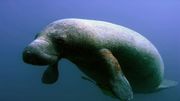Page values for "IRLNews:USFWS, FWC, and FPL Expand Manatee Efforts"
"News_Link" values
1 row is stored for this page| Title | USFWS, FWC, and FPL Expand Manatee Efforts |
| Url | https://content.govdelivery.com/accounts/FLFFWCC/bulletins/2ffea44 |
| Description | U.S. Fish and Wildlife Service (USFWS), Florida Fish and Wildlife Conservation Commission (FWC), and Florida Power & Light Company (FPL) are enhancing efforts to address the unusual manatee mortality event (UME) in the North Indian River Lagoon. |
| Image | |
| Region | Brevard County |
| Water_Body | North Indian River |
| Location | Port St. John |
| Access_Date | December 8, 2021 |
| Published_Date | December 8, 2021 |
| Publisher | Florida Fish and Wildlife Conservation Commission |
| Publisher_Url | https://MyFWC.com |
| Type | Press Release |
| SubTitle | USFWS, FWC, and FPL expand efforts to address Florida manatee mortality event. |
| Keywords | Port Saint John Florida Manatee Unusual Mortality Event |
| Topic | Brevard County Locale |
| Page | West Indian Manatee |
| Text_Body | The U.S. Fish and Wildlife Service (USFWS) and Florida Fish and Wildlife Conservation Commission (FWC), in cooperation with Florida Power & Light Company (FPL), are enhancing ongoing efforts to address the unusual manatee mortality event (UME) along Florida’s Atlantic coast. After thorough science, policy and legal reviews, and substantial coordination, the USFWS and FWC leadership recently approved the Unified Command establishing a Temporary Field Response Station at FPL’s Cape Canaveral Clean Energy Center in Brevard County. The Response Station will support several UME response operations already underway in the central Indian River Lagoon, such as manatee rescues, carcass recovery, and limited field health assessments. In approving the Response Station, USFWS and FWC leadership also approved staff to conduct a short-term feeding trial, referred to by many as supplemental feeding. The goals of this limited, small-scale feeding trial are two-fold: 1) to reduce manatee mortality and 2) to reduce the number of animals in need of rescue, allowing the limited space in permitted critical care facilities to remain open for animals needing rehabilitation for other reasons. “We understand the importance of a timely response. Our agencies and Unified Command partners carefully considered all aspects of a short-term feeding trial,” said Shannon Estenoz, Department of the Interior Assistant Secretary for Fish and Wildlife and Parks. “It is critical we help manatees in the short term with actions that are compatible with their long-term well-being and resilience.” The Response Station is not a location for mobile veterinary care or rehabilitation. Our partners with the Manatee Rescue and Rehabilitation Partnership will continue to care for rescued animals at their federally permitted rehabilitation facilities. “We thank all of our staff and partners, including FPL and the Manatee Rescue and Rehabilitation Partnership, for doing an amazing job during a very intense situation,” said FWC Assistant Executive Director, Dr. Thomas Eason. “The ongoing work of these groups is making a difference for manatees while efforts continue to address larger issues within the lagoon ecosystem.” Unified Command partners still anticipate relatively high mortality along Florida’s Atlantic Coast during the winter of 2021-22 due to chronic effects of starvation from the loss of seagrass associated with poor water quality within the Indian River Lagoon. Because this trial effort is a management action that has not been tried before, we do not know how many manatees will visit the site or how much vegetation individual manatees will consume. The goal of this action is to reduce manatee mortality. It will not eliminate it. Beyond on-site support, FPL is substantially contributing to other manatee response operations by working with the Fish & Wildlife Foundation of Florida to obtain an additional FWC rescue truck and provide on the ground assistance. “Environmental stewardship is a critical aspect of FPL’s continued efforts to deliver clean, reliable and affordable energy to its customers,” said Kate MacGregor, FPL vice president of environmental services. “For over 30 years, we have worked closely with state and federal agencies to ensure manatees are protected and we stand ready to support FWC and USFWS in their ongoing conservation efforts for this important species.” People can help manatee conservation by reporting injured, distressed, or dead manatees to the FWC Wildlife Alert Hotline at 888-404-3922. |
| Poster | Admin |
| Posted | 20211208130852 |
